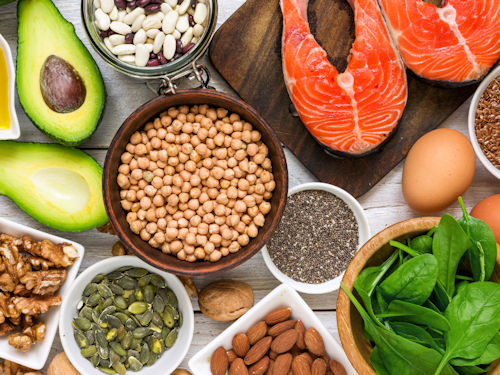Embarking on the journey to motherhood? Your body deserves the best care to support a healthy pregnancy and a thriving baby. Pre-natal supplements play a crucial role in providing your body with the essential nutrients it needs, even before you conceive!
Keep reading to discover the power of proper nourishment and learn how pregnancy supplements can be a game-changer for both you and your little one!
In this article, we unveil the numerous advantages of taking pregnancy supplements prior to conception and throughout pregnancy. From preparing your body for this miraculous experience to reducing the risk of birth abnormalities and enhancing overall maternity outcomes, these supplements are a must-have for every aspiring mom-to-be. Dive into the world of essential nutrients like folic acid, iron, choline, lutein, and more – and understand how they contribute to a healthy pregnancy. But it doesn’t stop at supplements – a balanced diet and lifestyle are crucial for the journey ahead, to optimise the chances of conception and ensure a successful pregnancy. Let’s break it all down for you!

Folic Acid
Folic acid is an important B vitamin for the development of a baby during pregnancy. It is essential for the development of the neural tube, which forms during the early stages of pregnancy and encloses the brain and spinal cord. A sufficient intake of folic acid prior to and throughout early pregnancy can minimise the chance of significant brain and spine birth abnormalities. Pregnant women have access to a variety of different types of folic acid, including:
- Live folic acid: This is derived from natural sources, such as leafy greens and legumes. Folic acid that is derived from whole foods is often more easily absorbed and used by the body than synthetic versions.
- Synthetic folic acid: This type of folic acid is commonly found in supplements and fortified foods. Fortified foods are those that have additional nutrients added to them that don’t naturally occur in the food. It is manufactured in a laboratory and is the type of folic acid advised for pregnant women due to its high absorption rate.
- Methylfolate: This type of folic acid is extracted from certain types of food and is already in its active state and may be utilised by the body without further conversion. Some foods naturally including Methylfolate include some green vegetables and legumes, fermented foods, and berries. Overall, Methylfolate is considered the most effective form of folic acid in preventing birth abnormalities due to its active state, making it a preferred choice for many pregnant women.
Iron
The mineral iron helps assist with the optimal growth of a baby during pregnancy. It is essential for the creation of red blood cells and the transfer of oxygen to the tissues of the body. A lack of iron during pregnancy can result in anaemia, which causes tiredness, weakness and an increased risk of infection in the mother-to-be.
Taking a high-quality iron supplement throughout pregnancy and when attempting to conceive can assist in ensuring that both the mother and their growing little one have sufficient iron for optimal health. It’s also important to make sure you take an appropriate amount of Iron and not overdo it. The recommended daily dose of Iron for a pregnant woman is 27mg.
For some women, taking prenatal supplements with high levels of iron can cause constipation because it can irritate and inflame the gastrointestinal system. This slows the flow of food through the digestive system, making it more difficult for the body to expel waste. In addition, excess iron can alter the gut microbiota, resulting in an imbalance in the population of beneficial bacteria, which can also contribute to constipation.
Women experiencing these types of symptoms often benefit from taking a prenatal supplement with a different type or lower amounts of iron.
Choline
Choline is an important vitamin present in several food sources, including eggs, fish, and meats. It is especially crucial during pregnancy since it contributes to the development of the baby’s brain and nervous system. A sufficient intake of choline can aid in the formation and development of these vital structures.
Choline may also help avoid birth problems such as neural tube defects, which occur when the brain or spinal cord does not develop properly. According to studies, pregnant women who ingest more choline have a reduced chance of having a child with certain birth abnormalities.
In addition to its involvement in foetal development, choline serves a crucial role in sustaining the function of the mother’s liver. It reduces the likelihood of developing fatty liver disease and other liver-related problems during pregnancy.
Choline is an important ingredient that contributes significantly to the health and well-being of both mother and child during pregnancy. It is essential to consume choline-rich meals or supplements that contain adequate levels of choline.
Lutein
Lutein is an antioxidant present in several fruits and vegetables, including spinach, kale, and corn. It is also sold as a nutritional supplement. During pregnancy, lutein may give both the mother and the growing baby several benefits.
The advantages of taking lutein during pregnancy are:
- Lutein is essential for the development of the eyes, particularly the retina, during foetal development. According to studies, pregnant women who ingest more lutein have a reduced chance of having a child with eye-related abnormalities.
- Lutein is a potent antioxidant that protects against oxidative stress, which is a result of less-than-ideal lifestyle choices and causes systemic degeneration and inflammation. This is particularly crucial during pregnancy since the growing baby is susceptible to the negative effects of oxidative stress.
- Lutein may also have positive health impacts on the mother during pregnancy. For instance, it may help minimise the incidence of pre-eclampsia, a potentially fatal pregnancy condition consisting of rising blood pressure, protein in the urine and severe swelling.
- Some evidence indicates that lutein may play a role in cognitive development, namely attention, memory, and problem-solving.
- Lutein also supports quality of sleep which is important anytime throughout pregnancy, but particularly in the third trimester when the mother can start to become uncomfortable when trying to rest.
It is essential to highlight that using lutein supplements during pregnancy should be done under the supervision of a healthcare professional, as excessive intake may have negative effects.
Maintain a Balanced Diet
Maintaining a balanced diet and lifestyle, along with taking pregnancy vitamins, are crucial for women who are trying to conceive or are pregnant. To ensure overall health, it is important to exercise regularly, get adequate rest, and manage stress levels. A balanced diet not only supports conception, pregnancy, and foetal growth but also provides essential nutrients and energy.
Key elements of a balanced diet include:
- Fruits
- Vegetables
- Whole grains
- Lean proteins
- Healthy fats

Specific food recommendations for women trying to conceive or pregnant include:
- Dark leafy greens, like kale and spinach, for their high folate content
- Lentils and beans, which are rich in iron
- Cold-water fish, such as salmon, for omega-3 fatty acids
- Chia seeds and flaxseeds, alternative plant-based sources of omega-3s
- Whole grain cereals, fortified with folic acid
- Lean meats, like chicken and turkey, for protein and iron
A diet rich in folate, iron, and omega-3 fatty acids can promote foetal growth and reduce the risk of birth abnormalities. Additionally, maintaining a healthy weight through a balanced diet can increase the chances of conception and decrease the likelihood of pregnancy complications.
Conclusion
I hope by reading this, you have learned that pregnancy vitamins prior to attempting conception/during early pregnancy will help supply the necessary nutrients to support a healthy pregnancy. These supplements assist in preparing the body for pregnancy, lowering the chance of birth abnormalities, and enhancing the overall results of pregnancy. Importantly, not all pregnancy vitamins are made equal.
If you or someone you know are trying to conceive, we recommend getting in touch so that we can discuss what your prenatal supplement needs are and recommend appropriate supplements and dosages optimal for you depending on your specific needs and medical history.
If you would like advice on what supplement is best for you, feel free to reach out to my team on (02) 4709 6727 and we would be glad to discuss how we can help in your situation.









